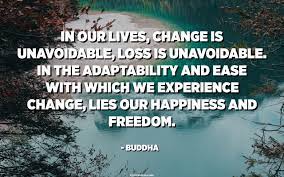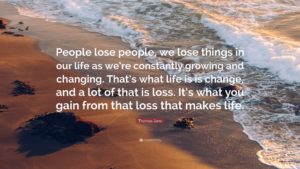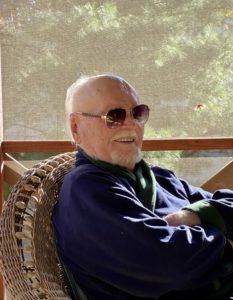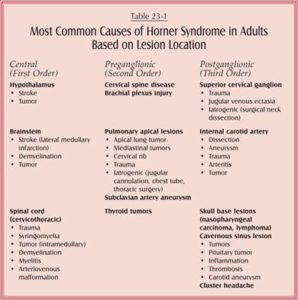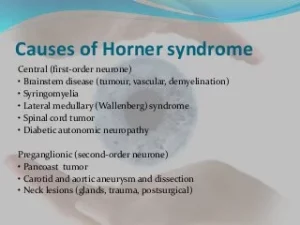Dedicated to my Beloved Uncle Owen Lynch who died this past week and will be greatly missed by many!!
Losing someone or something you love or care deeply about is very painful. You may experience all kinds of difficult emotions and it may feel like the pain and sadness you’re experiencing will never let up. These are normal reactions to a significant loss. But while there is no right or wrong way to grieve, there are healthy ways to cope with the pain that, in time, can renew you and permit you to move on.
For me personally I lost quite a few in my life this past year and most recently is to my dear Uncle Owen! Anyone out their who has had a loss recently I can relate to the feelings you might be experiencing and my deepest condolences to you but know you can cope with this in time. All who pass on are in a better world and both are so much happier out of misery especially if it was fight in staying alive but maybe harder for those who could not prepare for it over some time. Know it is us on earth in misery but it will heal in time like a wound. The other thing to know is that individual or individuals have never left us. They are both with old and new loved ones that they saw all the time and some rarely when they were living on earth but left years or months ago before the significant one you just lost. They will never leave us and help us get through this rough time just like my father did in the late 1990’s when he died of cancer but never left me. I know my deceased family and friends are so much happier, no longer ill and they are with family now and friends they missed terribly with others that they have not seen for a long time. Know this, those who where terribly ill are no longer fighting to stay alive or to breath to their last breath. Instead now they are keeping a close eye on you and all loved ones they had in their life. As long as that person in my life who left me from earth is better off I know that is for the best which overrides my misery. My faith and being a RN over over 37 years seeing so many types of patients and some who may have passed on all types of units including oncology, burn units, all types of med surg, telemetry (cardiac), stroke, hospice and more might make it easier for me in dealing with death than some but trust me I still have feelings like everyone else in this world. God has his reasons for taking those significant in our life to leave this world and we may not understand why but we will in time whether it be in this world or the next. I am very thankful I had the time to see my loved ones significant in my life during my lifetime on earth and I put myself in that person’s shoes who struggled to stay alive and now is gone. I ask myself would you want the people down here on earth hurting and in misery for a long time, if you died and I say no to myself and you probably would say the same. So if you do agree with this apply this positive attitude for when you loose someone significant in your life it may just help you get through the struggle your going through.
Grief is a natural response to loss. It’s the emotional suffering you feel when something or someone you love is taken away. The more significant the loss, the more intense the grief will be. You may associate grief with the death of a loved one—which is often the cause of the most intense type of grief—but any loss can cause grief, including: divorce, loss of health, loss of a job, loss of financial stability, retirement, loss of a friendship, loss of a cherished dream (ex. spouses in their own business, planning to get married that never happens, loss of a mortgage on a new home, a loss of a baby, etc…).
The more significant the loss, the more intense the grief. However, even subtle losses can lead to grief. For example, you might experience grief after moving away from home, graduating from college, changing jobs, selling your family home, or retiring from a career you loved.
Grieving is a personal and highly individual experience. How you grieve depends on many factors, including your personality and coping style, your life experience, your faith, and the nature of the loss. The grieving process takes time. Healing happens gradually; it can’t be forced or hurried—and there is no “normal” timetable for grieving. Some people start to feel better in weeks or months. For others, the grieving process is measured in years. Whatever your grief experience, it’s important to be patient with yourself and allow the process to naturally unfold.
Dr Elisabeth Kübler-Ross pioneered methods in the support and counselling of personal trauma, grief and grieving, associated with death and dying. She also dramatically improved the understanding and practices in relation to bereavement and hospice care. This is quite aside from the validity of her theoretical work itself, on which point see the note, right.
Her ideas, notably the five stages of grief model, the model was first introduced by American Psychiatrist Elisabeth Kübler-Ross in her 1969 book, On Death and Dying, and was inspired by her work with terminally ill patients but simply a significant loss can experience these steps as well. They are: 1.) Denial 2.) Anger 3.) Bargaining 4.) Depression 5.) Acceptance . You go through all these steps in a loss and repeat them and not in order for all. Contrary to popular belief, you do not have to go through each stage in order to heal. In fact, some people resolve their grief without going through any of these stages. And if you do go through these stages of grief, you probably won’t experience them in a neat, sequential order, so don’t worry about what you “should” be feeling or which stage you’re supposed to be in.Kübler-Ross herself never intended for these stages to be a rigid framework that applies to everyone who mourns. In her last book before her death in 2004, she said of the five stages of grief: “They were never meant to help tuck messy emotions into neat packages. They are responses to loss that many people have, but there is not a typical response to loss, as there is no typical loss. Our grieving is as individual as our lives.”
While loss affects people in different ways, many experience the following symptoms when they’re grieving. Just remember that almost anything that you experience in the early stages of grief is normal—including feeling like you’re going crazy, feeling like you’re in a bad dream, or questioning your religious beliefs.
Symptoms of Grief: Shock and disbelief – Right after a loss, it can be hard to accept what happened. Sadness – Profound sadness is probably the most universally experienced. Guilt – You may regret or feel guilty about things you did or didn’t say or do. Anger – Even if the loss was nobody’s fault, you may feel angry and resentful. If you lost a loved one, you may be angry with yourself, God, the doctors, or even the person who died for abandoning you. You may feel injustice has been done to you. Fear – A significant loss can trigger a host of worries and fears. You may feel anxious, helpless, or insecure. You may even have panic attacks. You may feel fears of how do I live without this person. Physical Symptoms – We often think of grief as a strictly emotional process, but grief often involves physical problems, including fatigue, nausea, lowered immunity, weight loss or weight gain, aches and pains, and insomnia.
Coping with grief and loss is one get support.
The single most important factor in healing from loss is having the support of other people. do not grieve alone. Connecting to others will help you heal.
Here are some recommendations when finding support after a loss:
- Turn to friends and family members
- Draw comfort from your faith
- Join a support group – To find a bereavement support group in your area.
- Talk to a therapist or grief counselor – If your grief feels like too much to bear, call a mental health professional with experience in grief counseling.Face your feelings, express your feelings in a tangible and creative way (I am writing about it in my blog for example). Take care of your health (especially not on alcohol or drugs to numb the pain for it will be only temporary and unhealthy). Don’t have people inform you how to feel and when you will be better. Don’t tell yourself how you should feel. This is YOUR grief no one elses and when its time to move on or that you have gotten over the grief you will know. It is ok to be angry, ask why God did you do this to me, not understand why this took place, laugh at moments of good time memories
- When you’re grieving, it’s more important than ever to take care of yourself. If you don’t care for yourself you can’t take care of others. The stress of a major loss can quickly deplete your energy and emotional reserves.
- Don’t let anyone tell you how to feel, and don’t tell yourself how to feel either. Your grief is your own, and no one else can tell you when it’s time to “move on” or “get over it.” Let yourself feel whatever you feel without embarrassment or judgement. It’s okay to be angry, to yell at the heavens, to cry or not to cry. It’s also okay to laugh, to find moments of joy, and to let go when you’re ready. As time passes, these emotions should become less intense as you accept the loss and start to move forward.The sadness of losing someone you love never goes away completely, but it shouldn’t remain center stage. If the pain of the loss is so constant and severe that it keeps you from resuming your life, you may be suffering from a condition known as complicated grief . Unable to get rid of the intense grieving loss feelings and move on with your life. Still in intense mourning and unable to accept the death or loss you have had after a long period of time. A loss can effect you weeks to months to a year and if you move on at that point it is therapeutically dealing with it. Your feeling can still be present till you die but in less intensity since the occurrence of the loss.
- Contact a grief counselor or professional therapist if you:- Experiencing complicated grief, feel like life isn’t worth living, wish you had died with your loved one, blame yourself for the loss or for failing to prevent it, feel numb or disconnected from others for more than a few weeks, are having difficulty trusting others since your loss, are unable to perform your normal daily activities!
REFERENCES TO THIS ARTICLE:
- Block SD. Grief and bereavement. http://www.uptodate.com /index. Accessed Aug. 31, 2012.
- Dealing with the effects of trauma — A self-help guide. Substance Abuse and Mental Health Services. http://store.samhsa.gov/shin/content//SMA-3717/SMA-3717.pdf. Accessed Aug. 31, 2012.
- Holtslander L, et al. An inner struggle for hope: Insights from the diaries of bereaved family caregivers. International Journal of Palliative Nursing. 2008;14:478.
- Vale-Taylor P. “We will remember them”: A mixed-method study to explore which post-funeral remembrance activities are most significant and important to bereaved people living with loss, and why those particular activities are chosen. Palliative Medicine. 2009;23:537.
- Benkel I, et al. Managing grief and relationship roles influence which forms of social support the bereaved needs. American Journal of Hospice and Palliative Medicine. 2009;26:241.
- Reminders of trauma: Anniversaries. United States Department of Veterans Affairs. http://www.ptsd.va.gov/public/pages/anniversary-reactions.asp. Accessed Aug. 31, 2012.
7. MAYO CLINIC 2012
